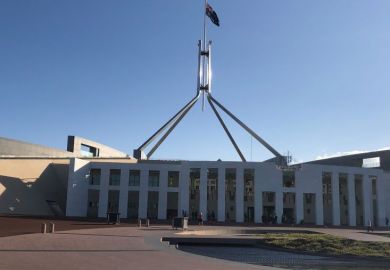Most urban Australians consider their international student neighbours a national economic asset, although more than half believe capping foreign enrolments will improve housing affordability, according to polling commissioned by representative body Universities Australia (UA).
The survey of over 1,500 voters, conducted by research company RedBridge, found that 57 per cent of voters considered overseas students a “positive” to Australia with just 19 per cent branding them “negative”.
The company canvassed voters’ views in 11 mostly marginal constituencies in Sydney, Melbourne, Brisbane, Perth and Adelaide. All 11 electorates host major university campuses or “large international student populations”, UA said.
Sixty-one per cent of respondents considered international students an “important driver of Australia’s economic growth” and 68 per cent deemed them “important to our workforce, filling skills gaps and working jobs many Australians choose not to”, according to a summary provided by UA.
An overwhelming 75 per cent said former international students added to “the skilled workforce and economic growth” when they remained in Australia after graduating.
The results come days before the expected release of “indicative” caps on the number of overseas students to be permitted at each university and college. A bill to legislate the caps passed parliament’s lower house on 13 August, after the government agreed to an amendment requiring a review of the legislation in the first half of 2026.
The amendment was moved by independent parliamentarian and former academic Monique Ryan, who represents one of the 11 polled electorates. She said a “critical review” of the “ill-conceived legislation” was needed to “limit the damage”.
The debate on the bill had revealed “a disturbing degree of dislike or distaste for international students” among some MPs, she said.
The survey found that support for international students was weakest among people intending to vote for independent or minor party politicians, and strongest among Labor and Greens voters. Only a minority of respondents thought that capping foreign student numbers would improve educational quality, campus environments or conditions for staff.
However, a slim 51 per cent majority thought caps would bring down the cost of housing. Another 36 per cent of respondents were neutral or unsure about the impacts, with just 13 per cent convinced that caps would make no difference to the affordability of accommodation.
The bill is expected to be considered by the Senate in September. A Senate committee scrutinising the legislation was expected to report on 15 August, but its inquiry has been extended until 6 September, with a public hearing scheduled for Sydney in late August.
Register to continue
Why register?
- Registration is free and only takes a moment
- Once registered, you can read 3 articles a month
- Sign up for our newsletter
Subscribe
Or subscribe for unlimited access to:
- Unlimited access to news, views, insights & reviews
- Digital editions
- Digital access to THE’s university and college rankings analysis
Already registered or a current subscriber?








